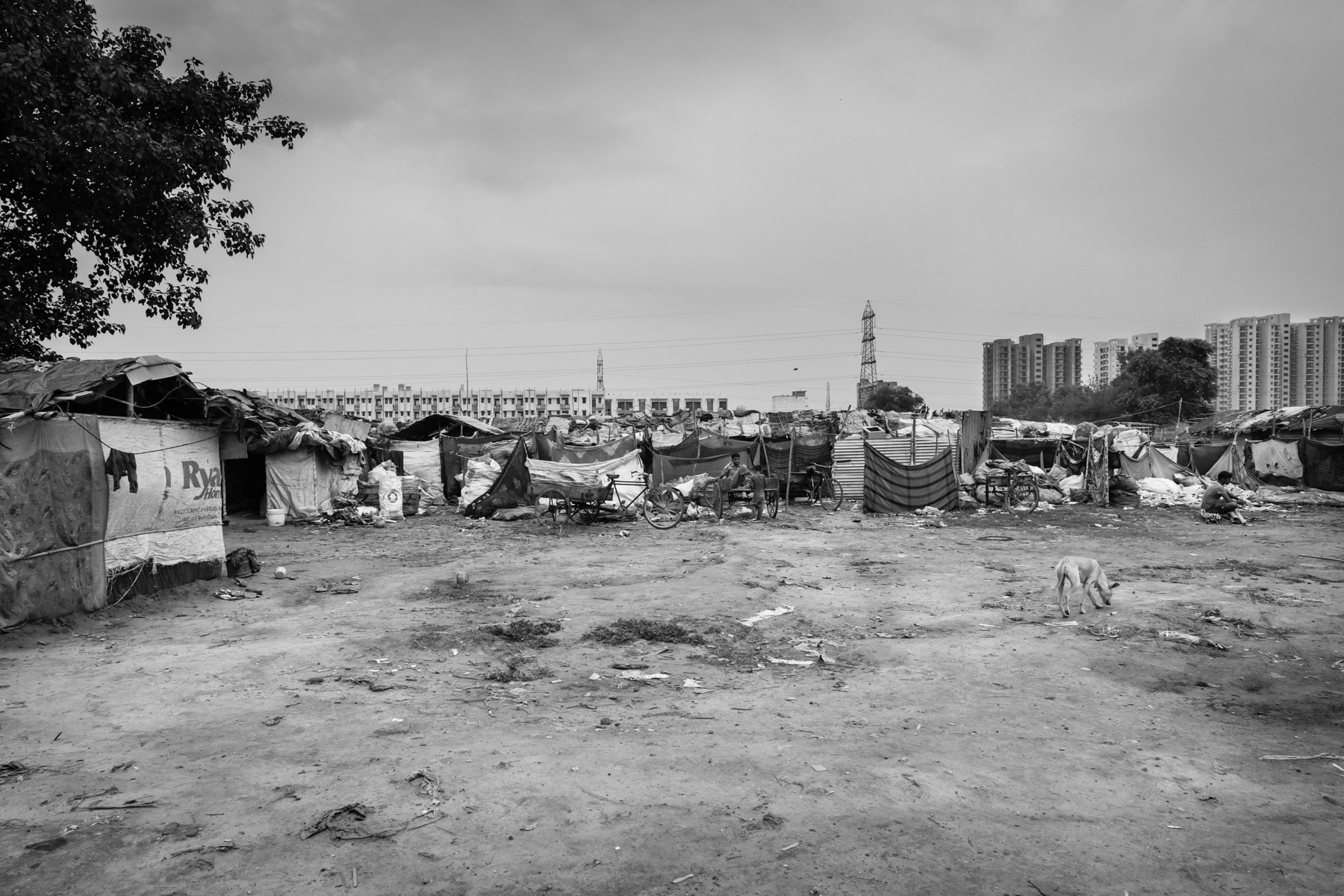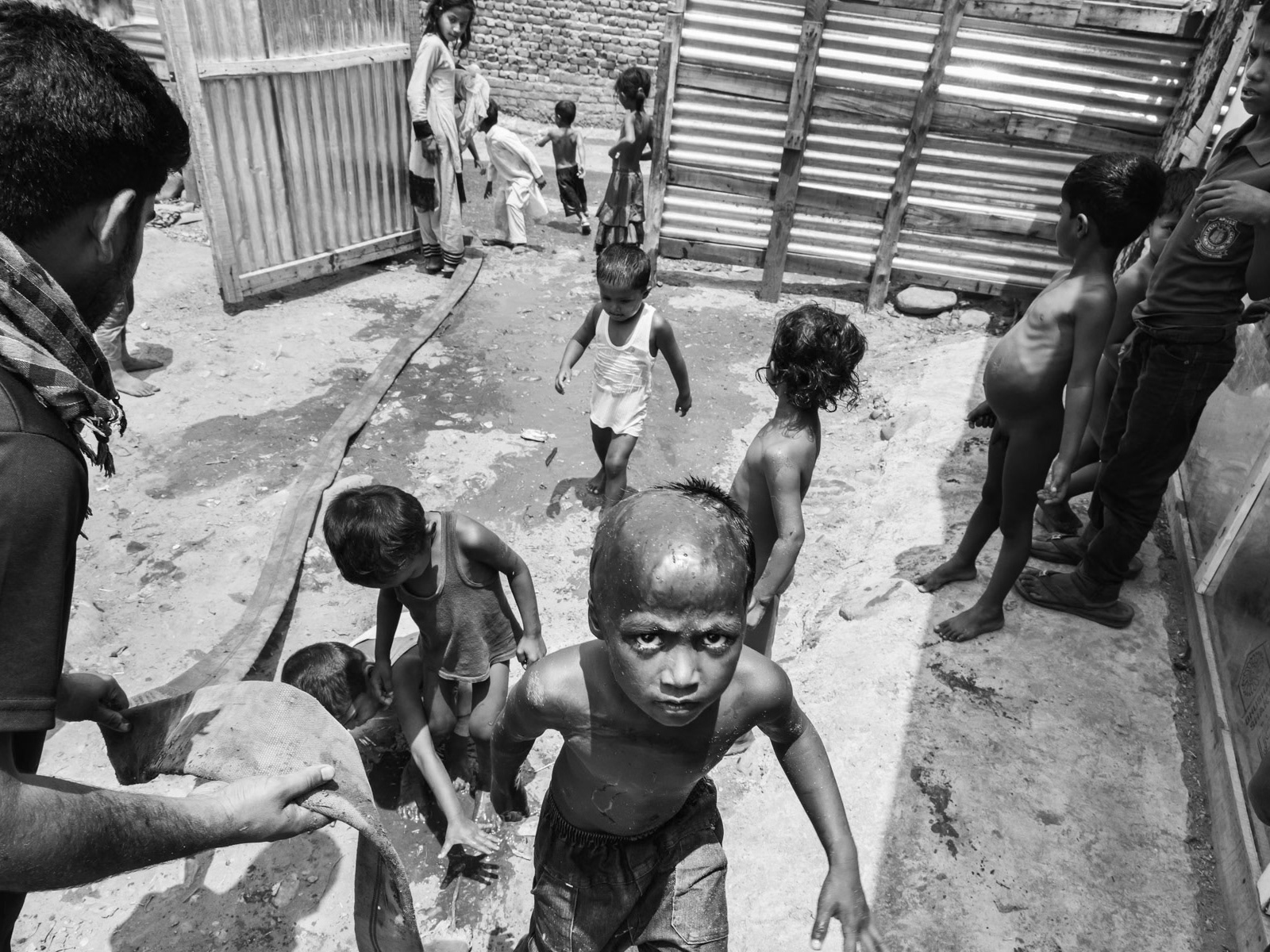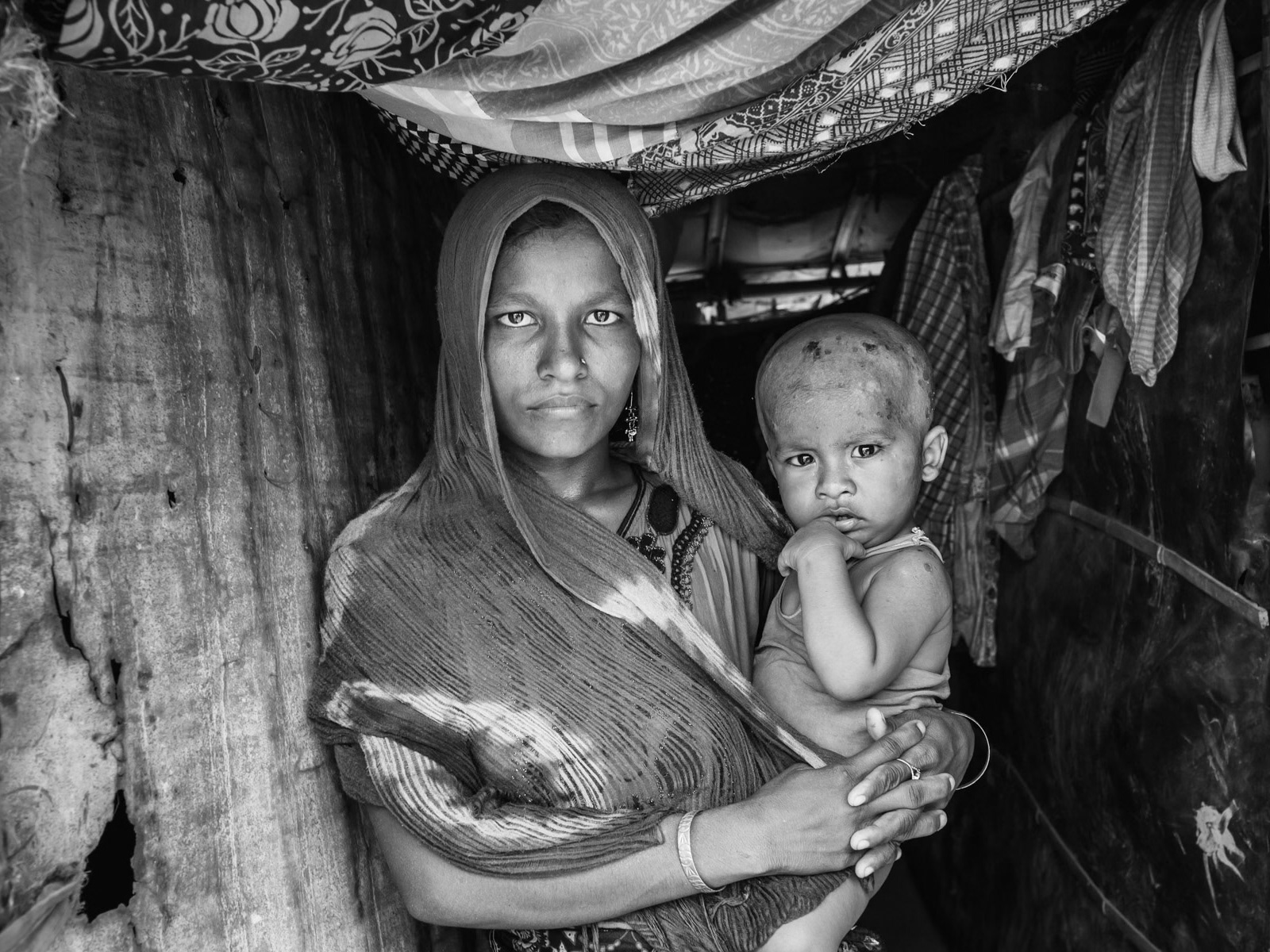Approximately 30,000 Rohingya refugees have fled persecution in Myanmar and sought refuge in India, settling mainly in urban slums across Haryana, Delhi, Hyderabad, Jammu, Jaipur, and Chennai. However, their plight in India mirrors the dire conditions they faced in Bangladesh, marked by poverty, exploitation, and insecurity.
Most Rohingya refugees in India live in overcrowded, makeshift shelters within marginalized urban areas, lacking basic sanitation, clean water, and access to healthcare. Without formal refugee status or legal protections, they remain vulnerable to exploitation, including bonded labor. Many find themselves at the mercy of traffickers or human smugglers who manipulate their desperation, trapping them in conditions akin to modern slavery. These traffickers often coerce refugees into unpaid or poorly paid labor in exchange for false promises of stability, safety, or documentation.
The lack of legal recognition and restricted access to education or formal employment further compounds their vulnerabilities, perpetuating a cycle of poverty and dependence. Rohingya children, too, are deeply affected, with many unable to access schools, leaving an entire generation at risk of being denied basic rights and opportunities.
Additionally, the refugees face growing hostility amid a political climate that often portrays them as security threats. Incidents of discrimination, harassment, and even detention have risen, adding to their precarity. Without significant intervention or support from the government or international humanitarian organizations, the Rohingya in India remain trapped in a dire situation, stripped of agency and basic dignity.
Urgent action is needed to address their vulnerabilities, provide legal protection, and ensure access to essential services. Strengthened regional cooperation and adherence to international human rights standards are critical to securing a future for the Rohingya refugees, breaking the cycle of exploitation and displacement they continue to endure.
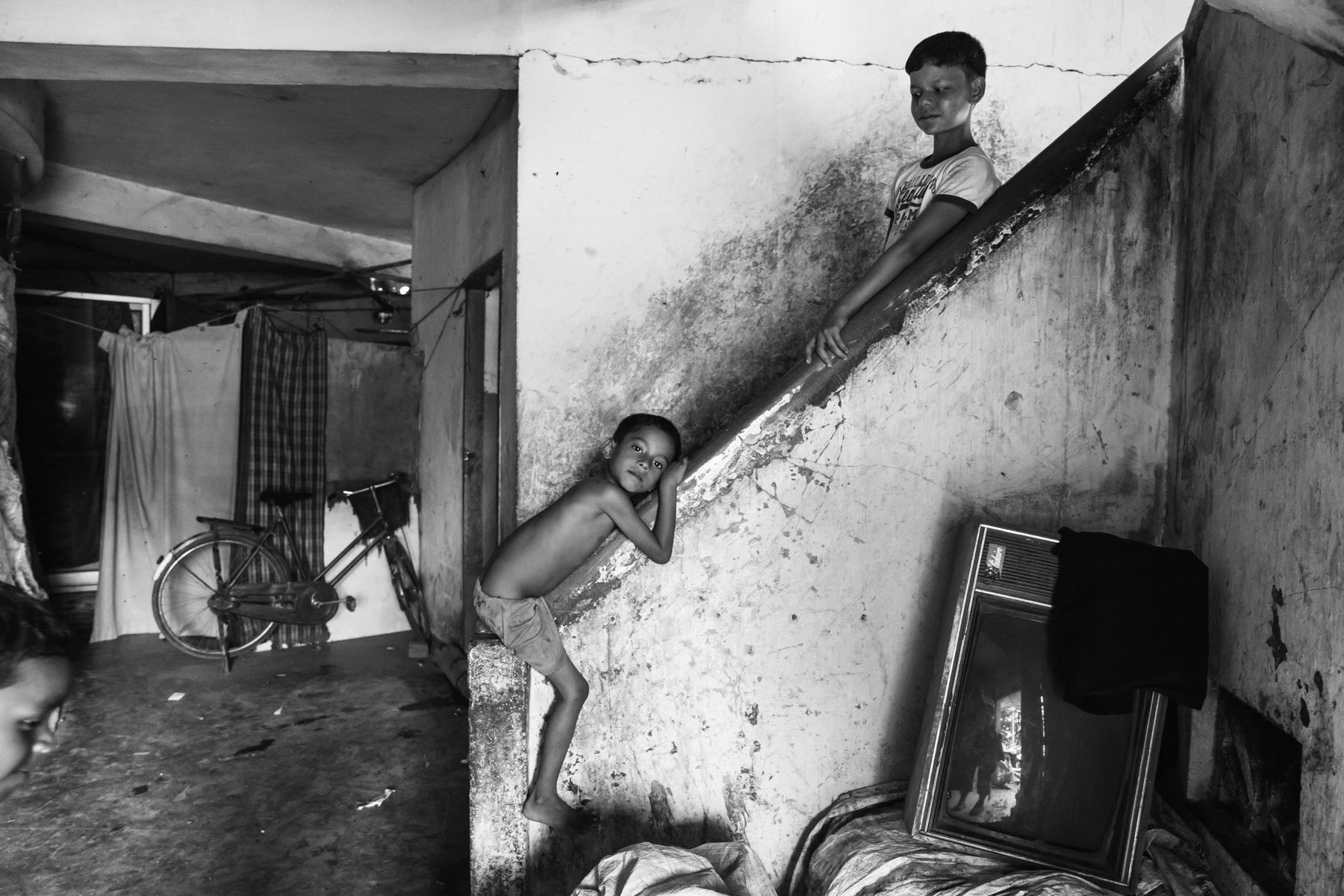
One hundred Rohingya refugees live in an abandonned cyclone shelter in Kelembakkam near Chennai in the Indian State of Tamil Nadu, India, June 2017
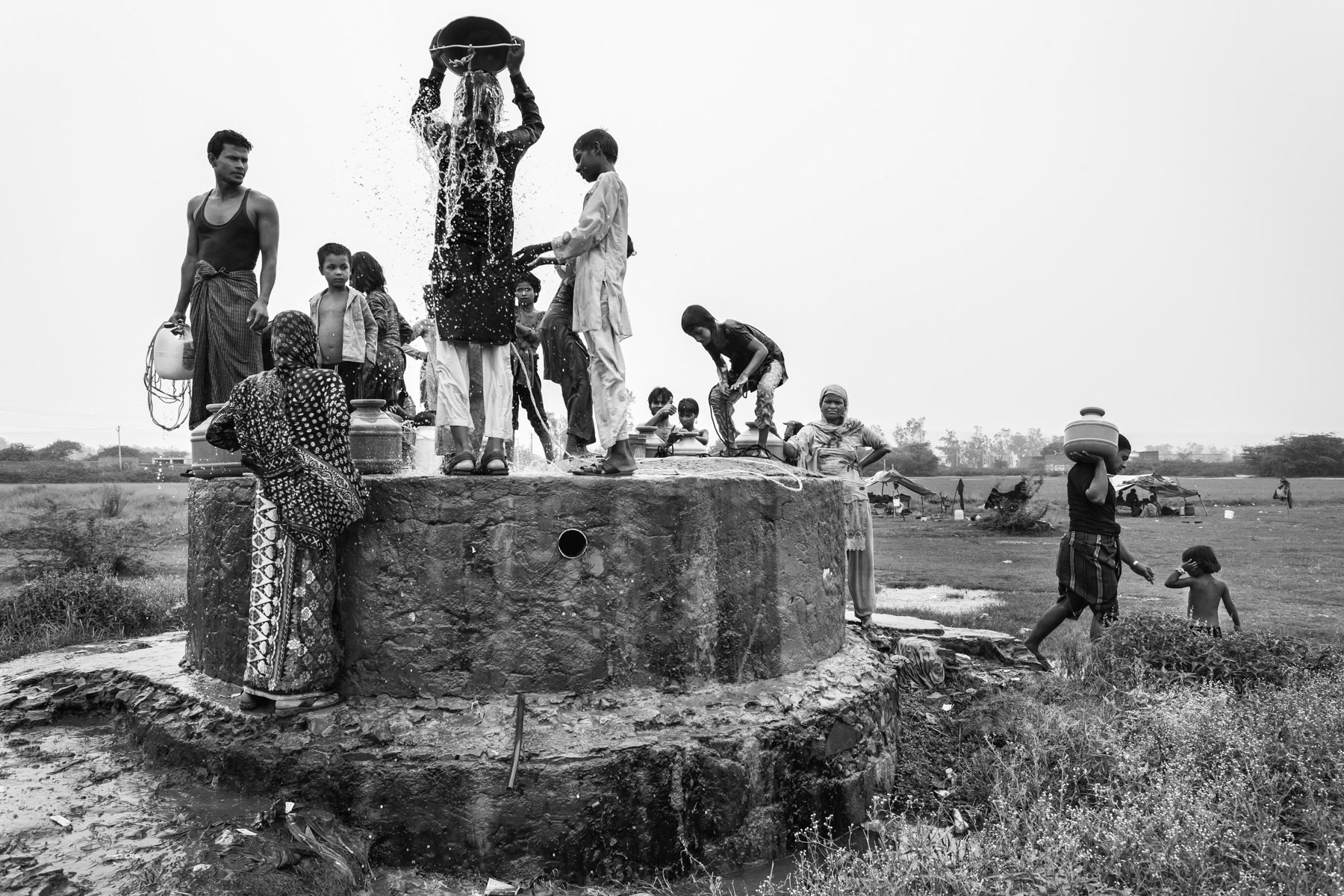
Rohingya refugees, Mewat camps, Haryana State, India, June 2016
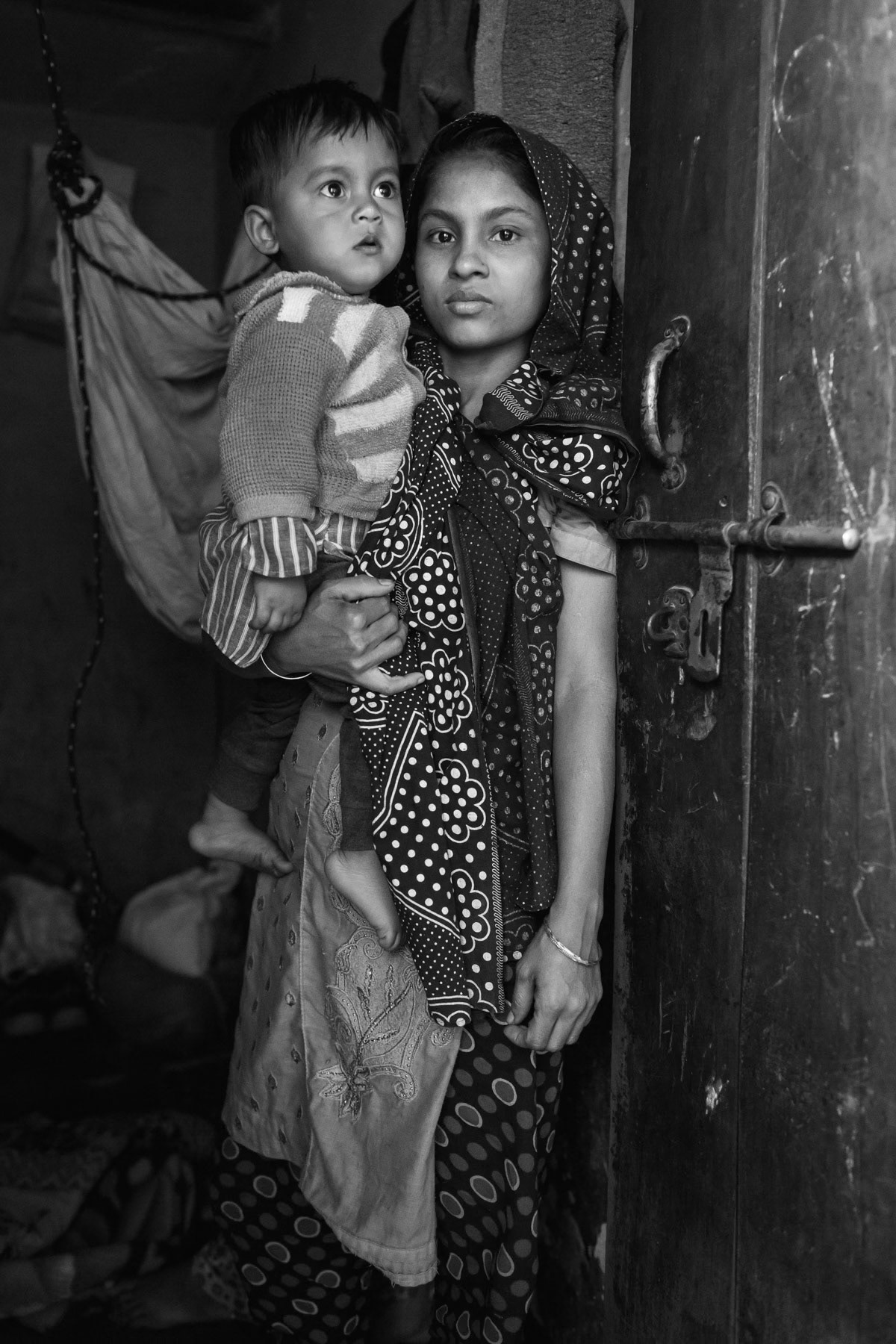
Rohingya family living in Shriram Colony in Kajuri, Rajiv Naghar in the suburbs of New Delhi, India, January 2016
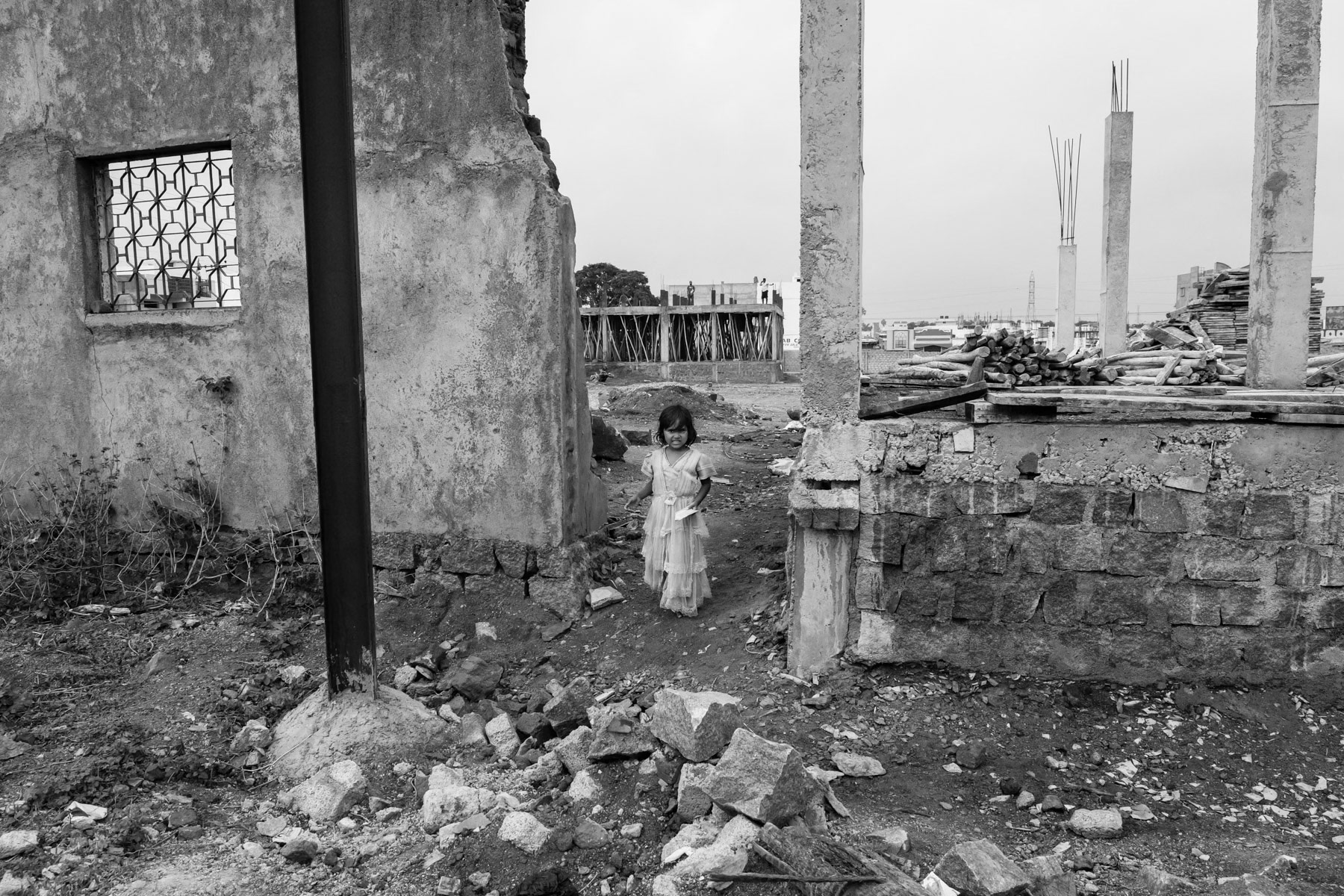
Construction sites where makeshift settlements for Rohingya are located. Balapur area in Hyderabad, India, June 2016
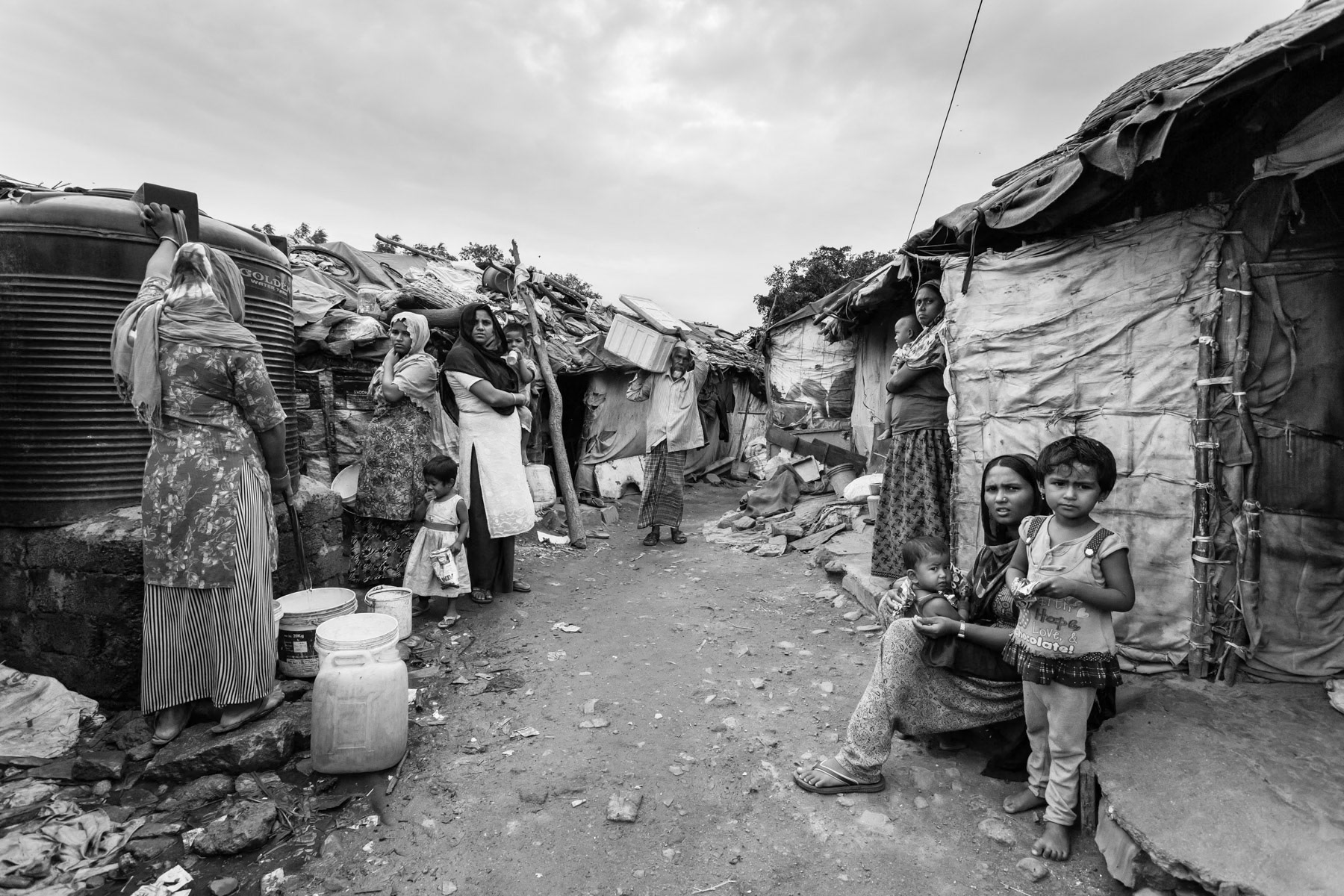
Balapur Camp for Rohingya refugees from Myanmar. Hyderabad, India, June 2016
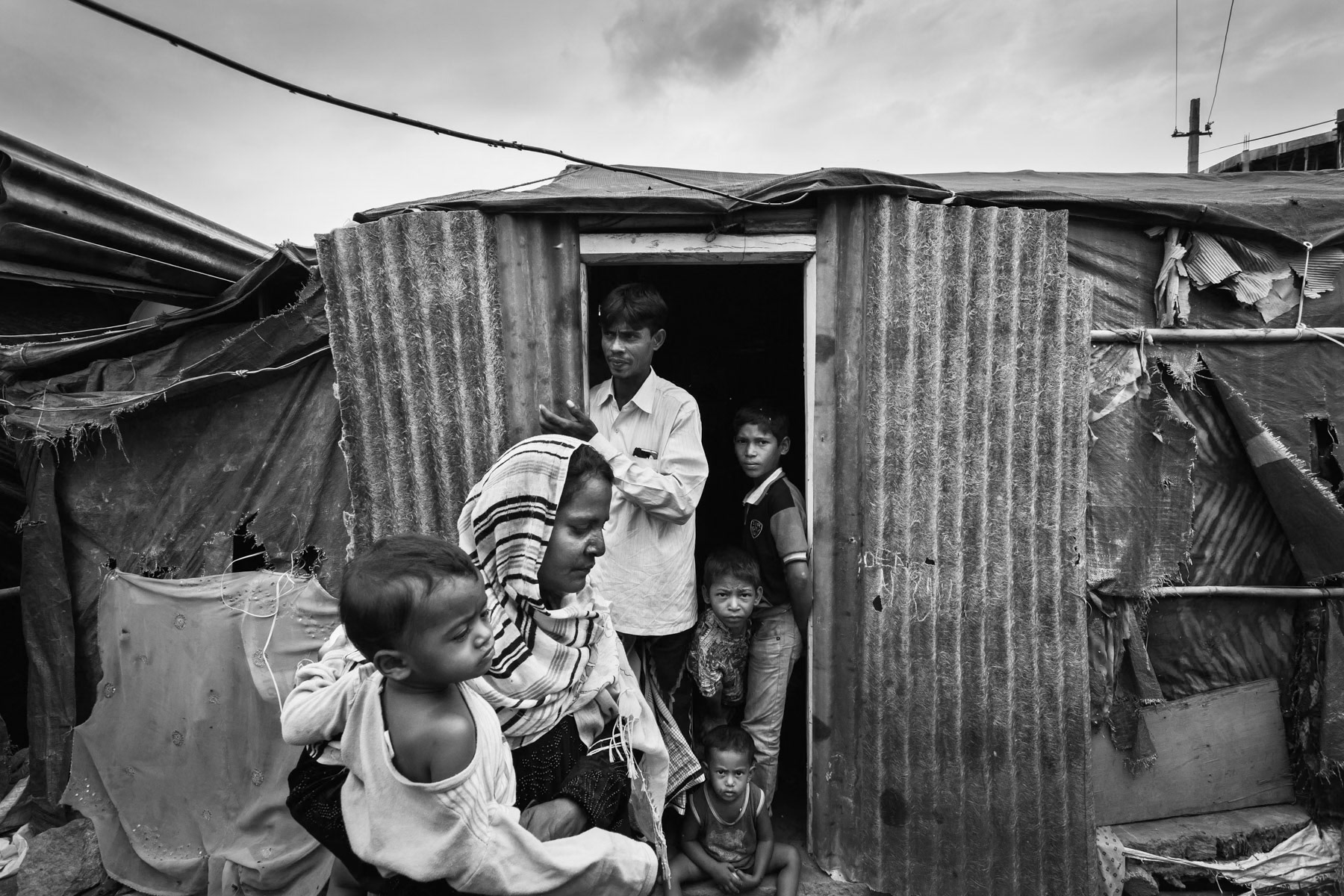
Makeshift shelters for the Rohingya community of Hyderabad, Balapur camp, India, June 2016
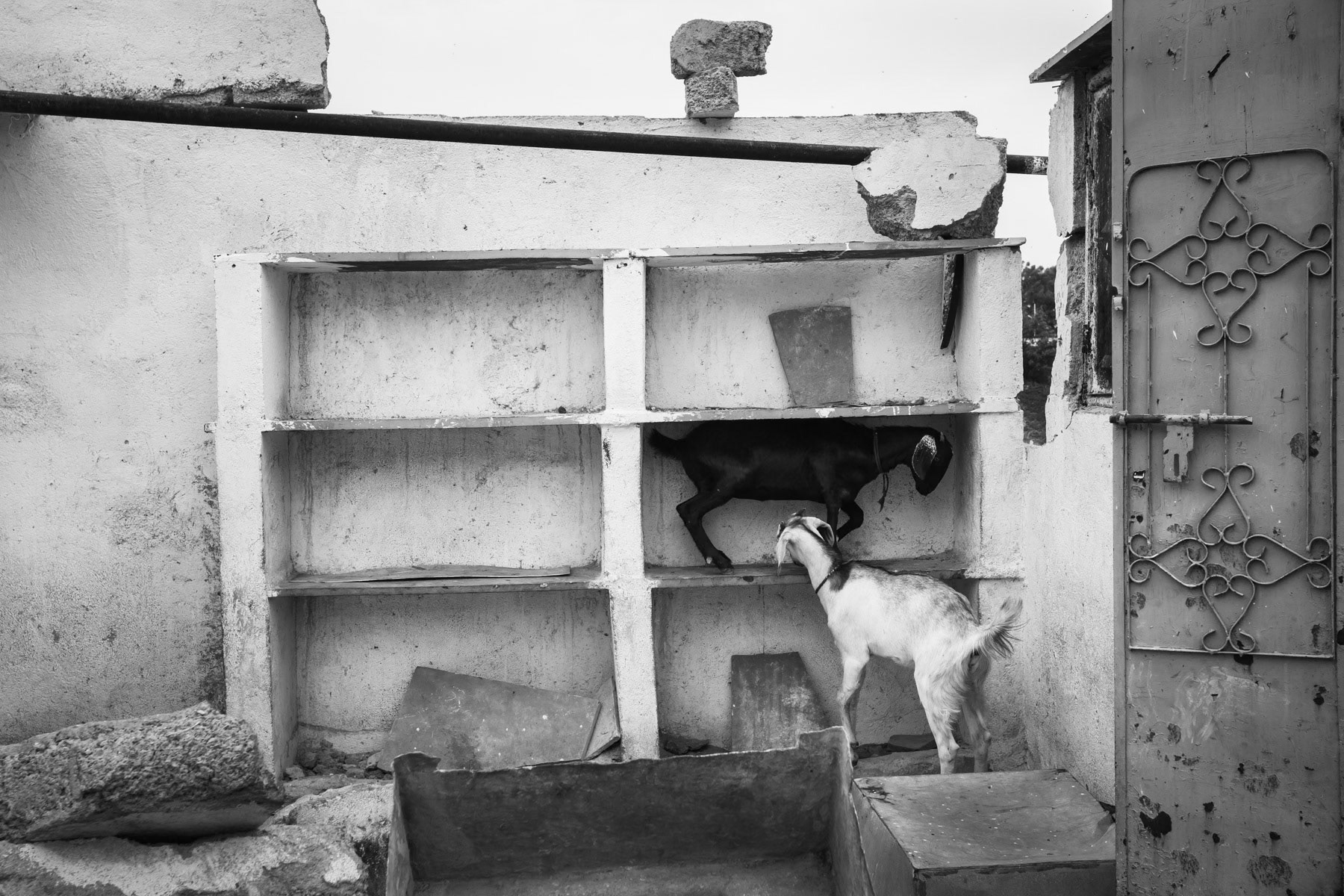
Demolshed dwelling that was built without permit and would have been used to rent to Rohingya families that can afford moving out of the makeshift shelters. Hyderabad, India, June 2016

Rohingya refugees living in a state of bonded labour, working until they can pay off their debts for having been smuggled into India. Faridabad in Haryana State, India, January 2016

Kunjankuh urban refugee camp for Rohingya refugees in a remote suburban area of Delhi. Okhla, New Delhi, India, January 2016
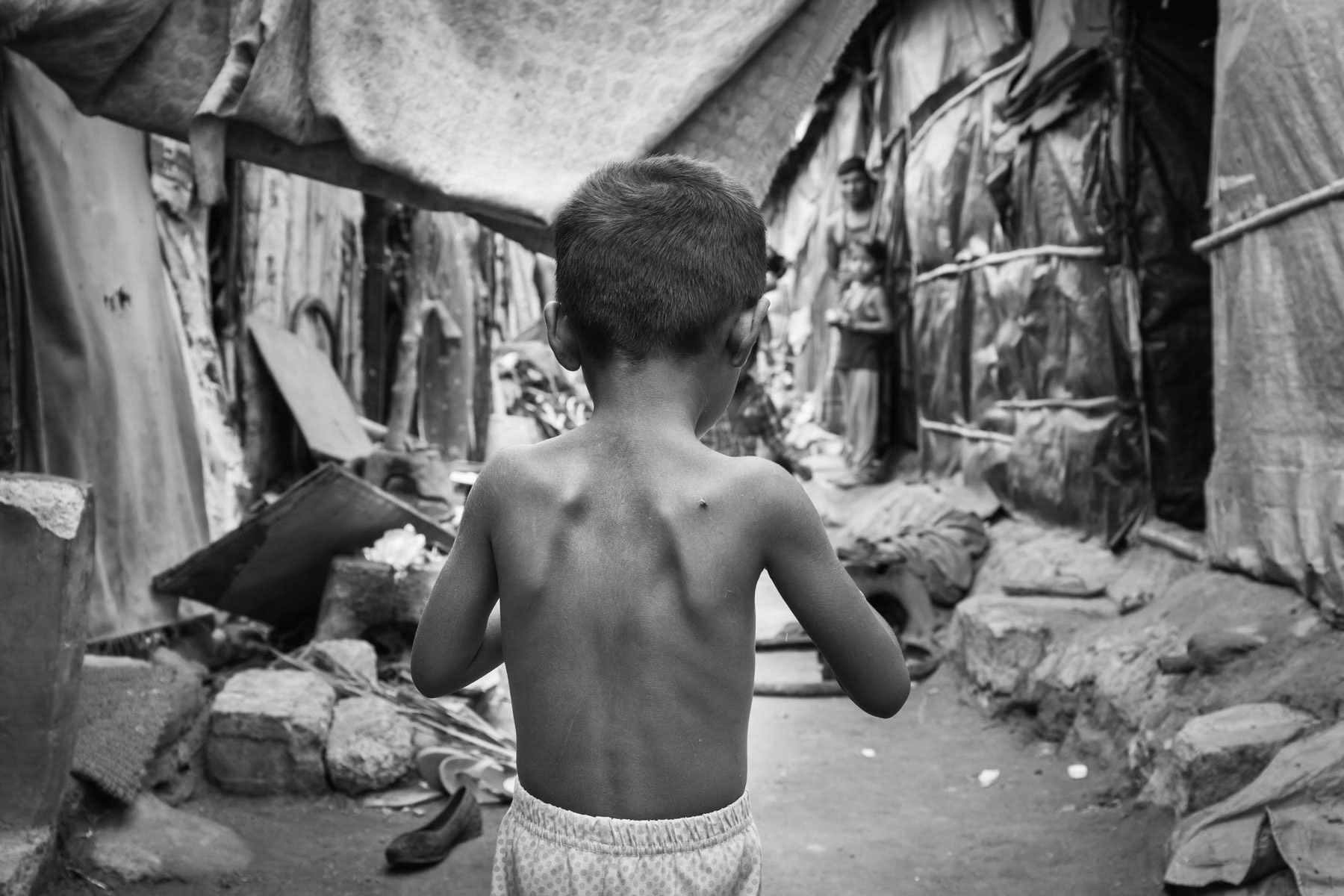
Makeshift Camp of Balapur, Hyderabad, India, June 2016
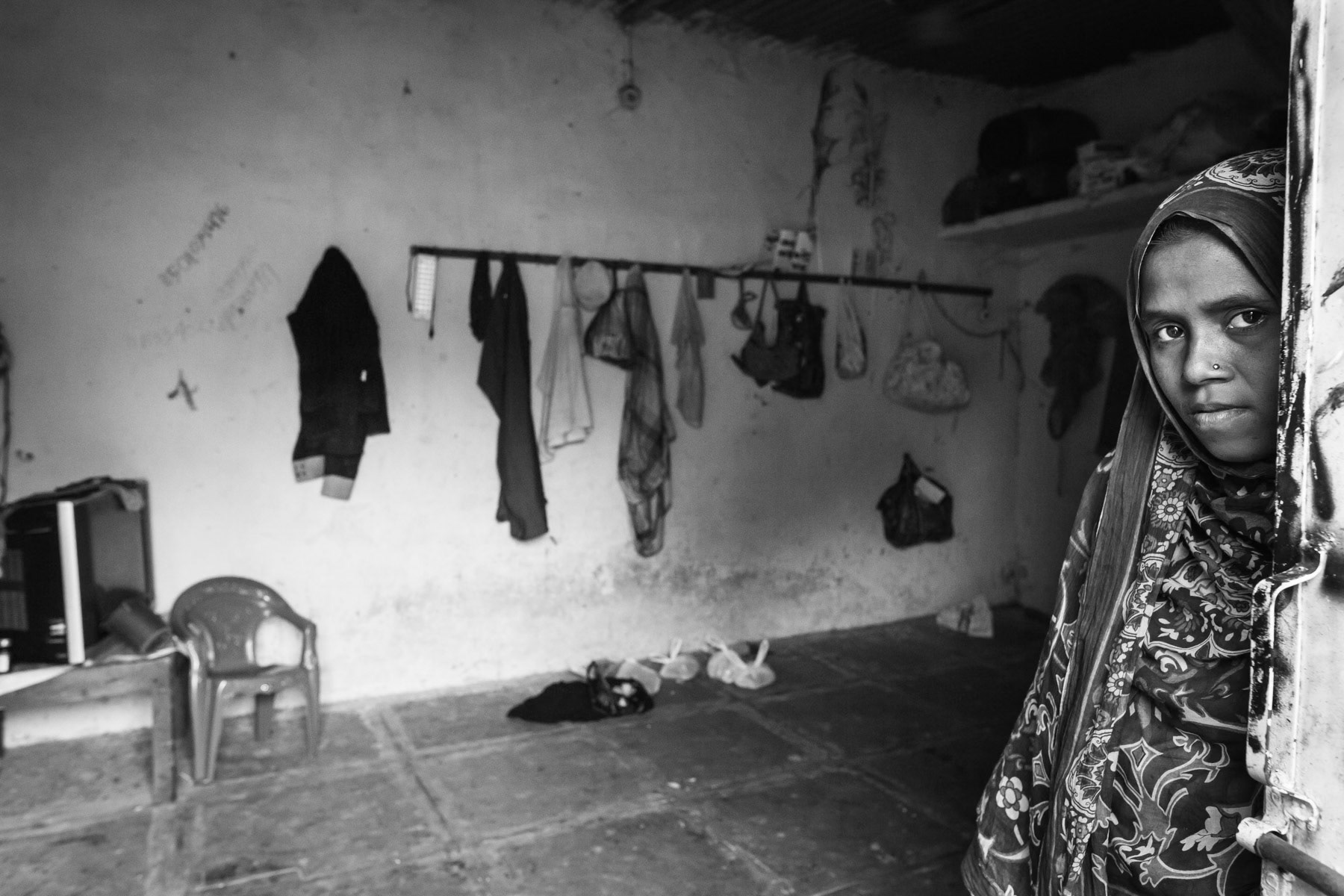
Urban Rohingya refugee, Hyderabad, India, June 2016
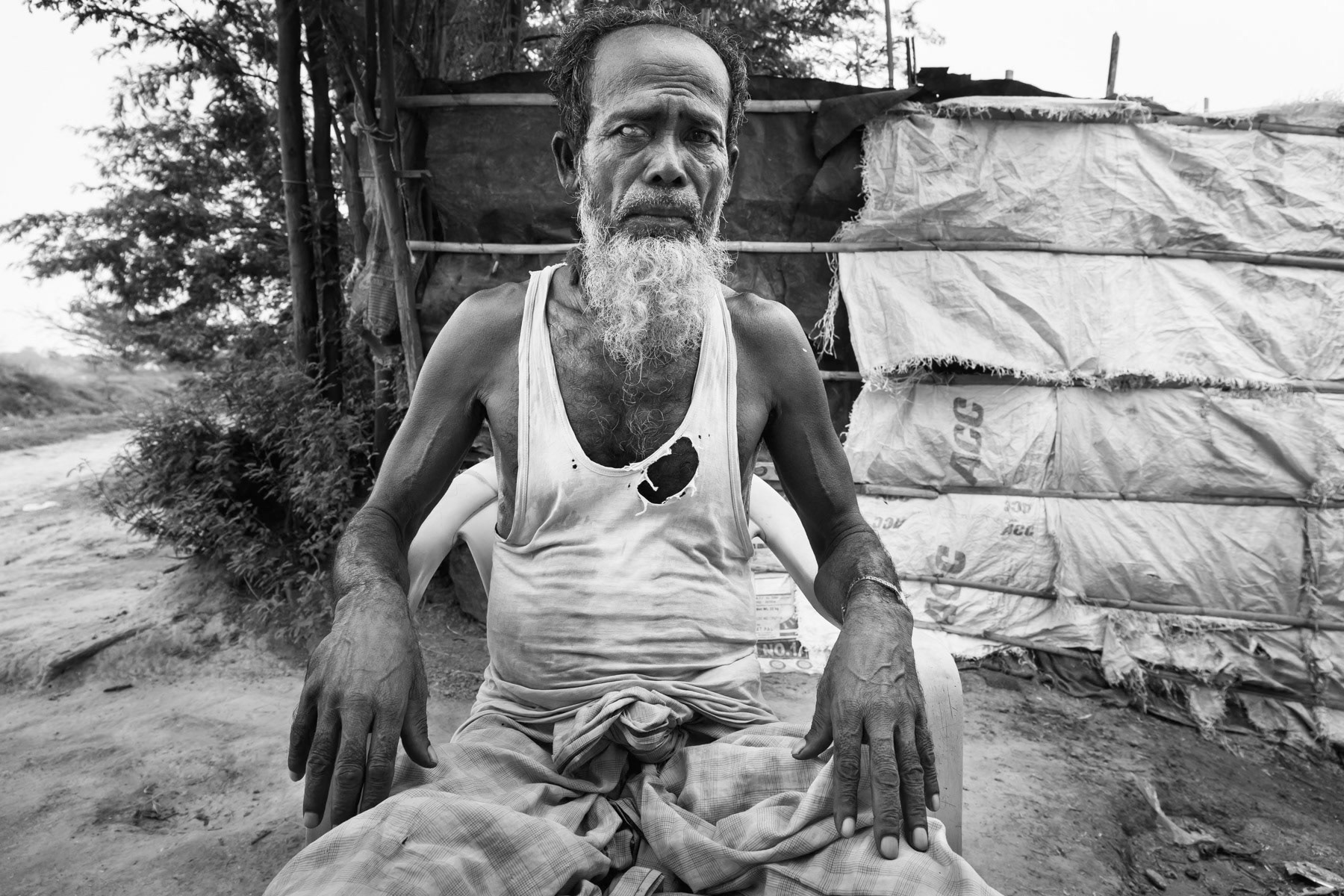
Nagli Nuh refugee camp for stateless Rohingya, Mewat in Haryana, India, June 2016

Several Rohingya families live together and can as such afford to rent better housing. Kisanbagh settlement in Hyderabad, India, June 2016

One hundred Rohingya refugees live in an abandonned cyclone shelter in Kelembakkam near Chennai in the Indian State of Tamil Nadu, India, June 2017

Kunjankuh urban refugee camp for Rohingya refugees in a remote suburban area of Delhi. Okhla, New Delhi, India, June 2017
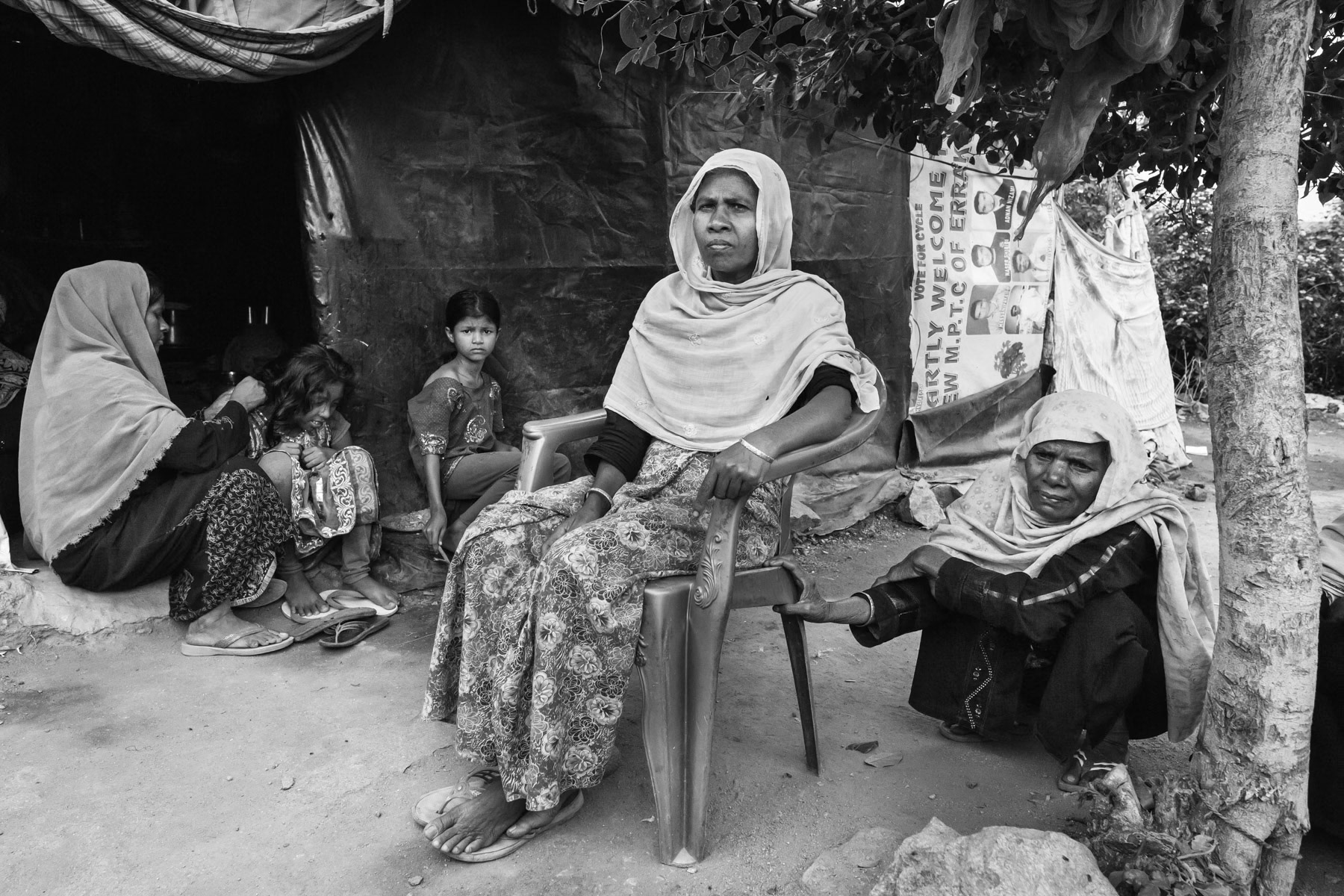
Rohingya refugee from Burma. Baba Nagar makeshift encampment in Hyderabad, India, June 2016
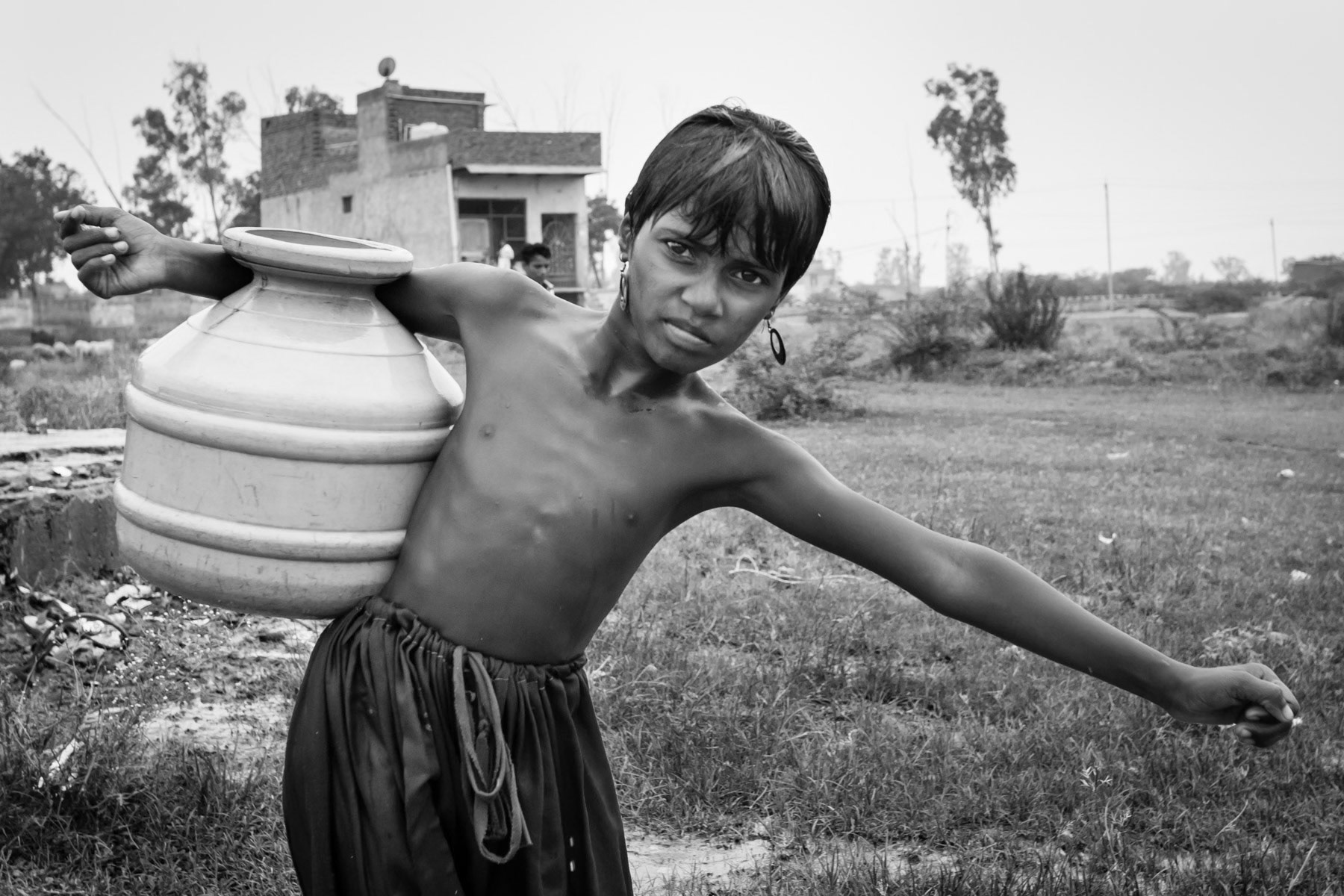
Carrying precious and scarce water. Rohingya settlement in Mewat, Haryana, India, June 2016
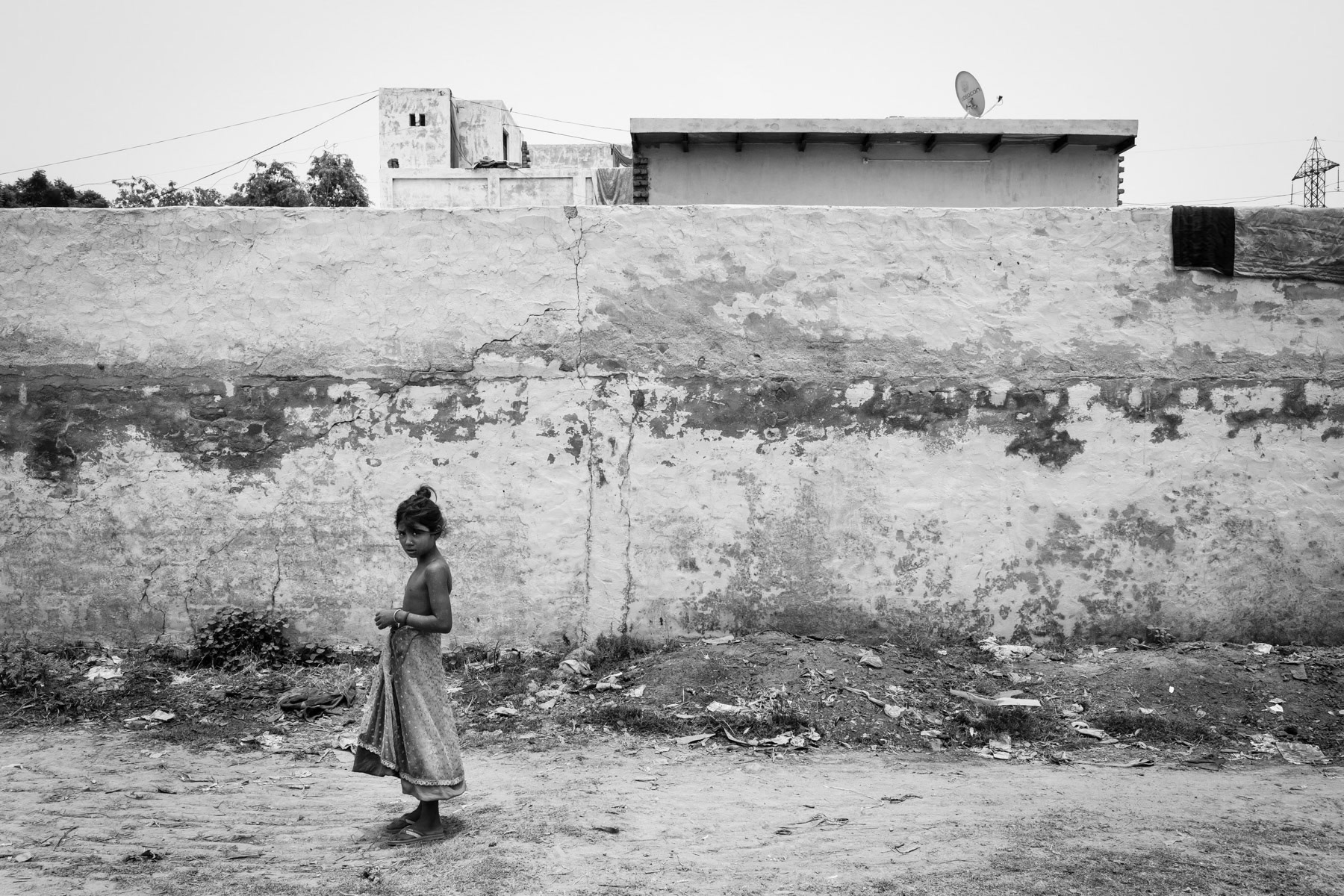
Mirzapur, Old Faridabad. Rohingya settlement, Harayana State, India, June 2016
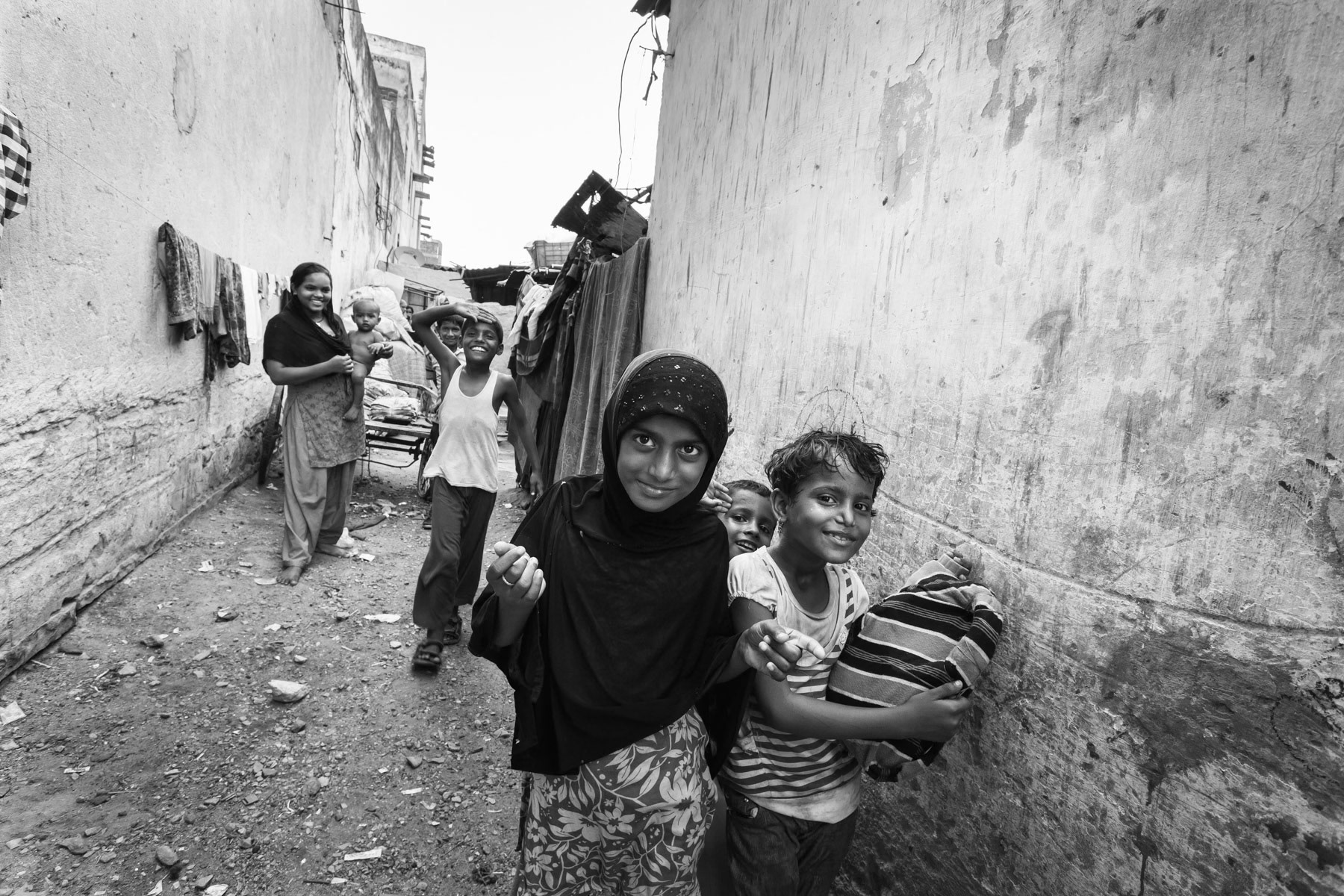
Rohingya refugees in Mehnat Nagar, Jaipur, India, June 2016
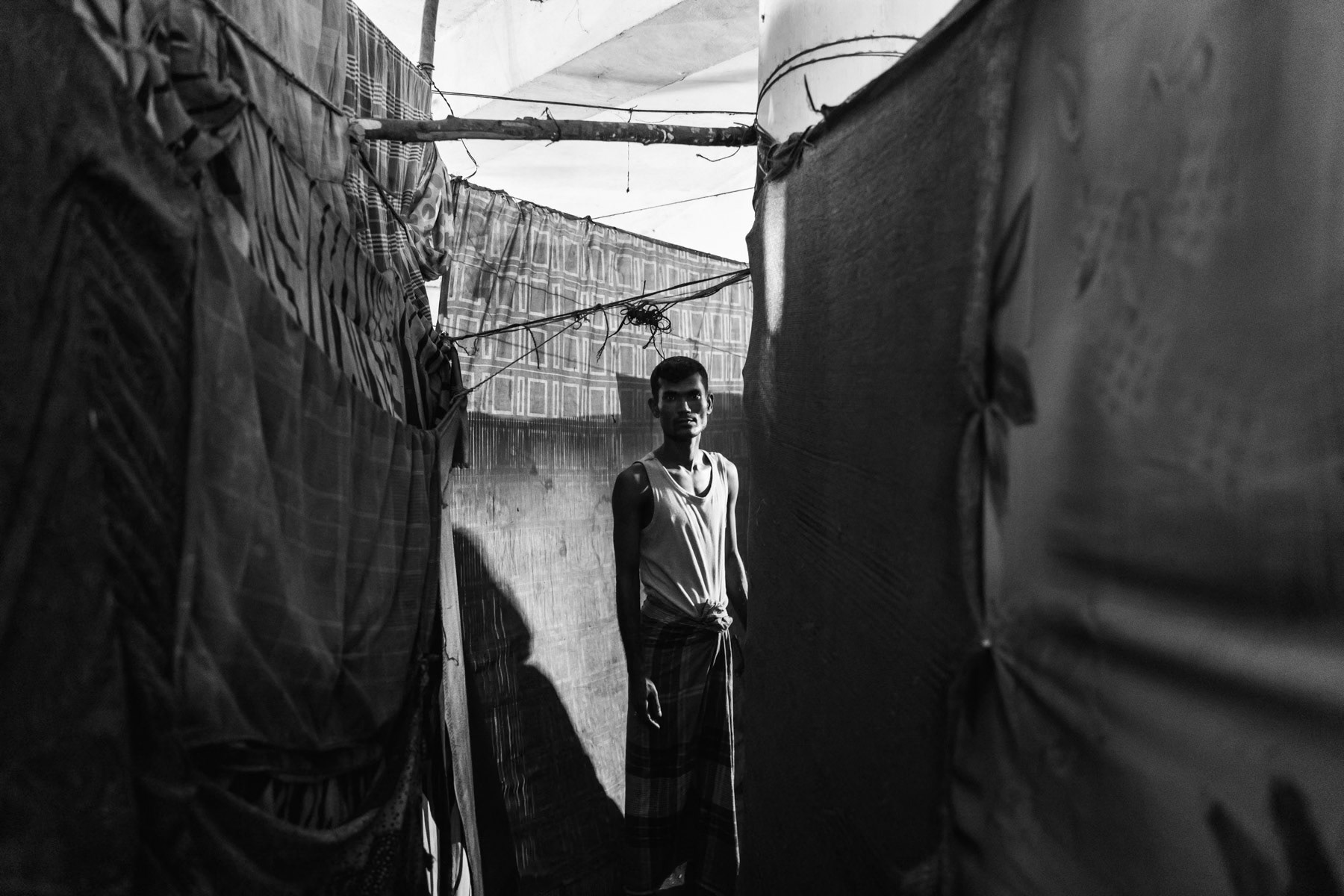
A Rohingya refugee in an abandonned cyclone shelter hosting 20 families for the past 3 years. Kelembakkam in Tamil Nadu State, India, June 2017
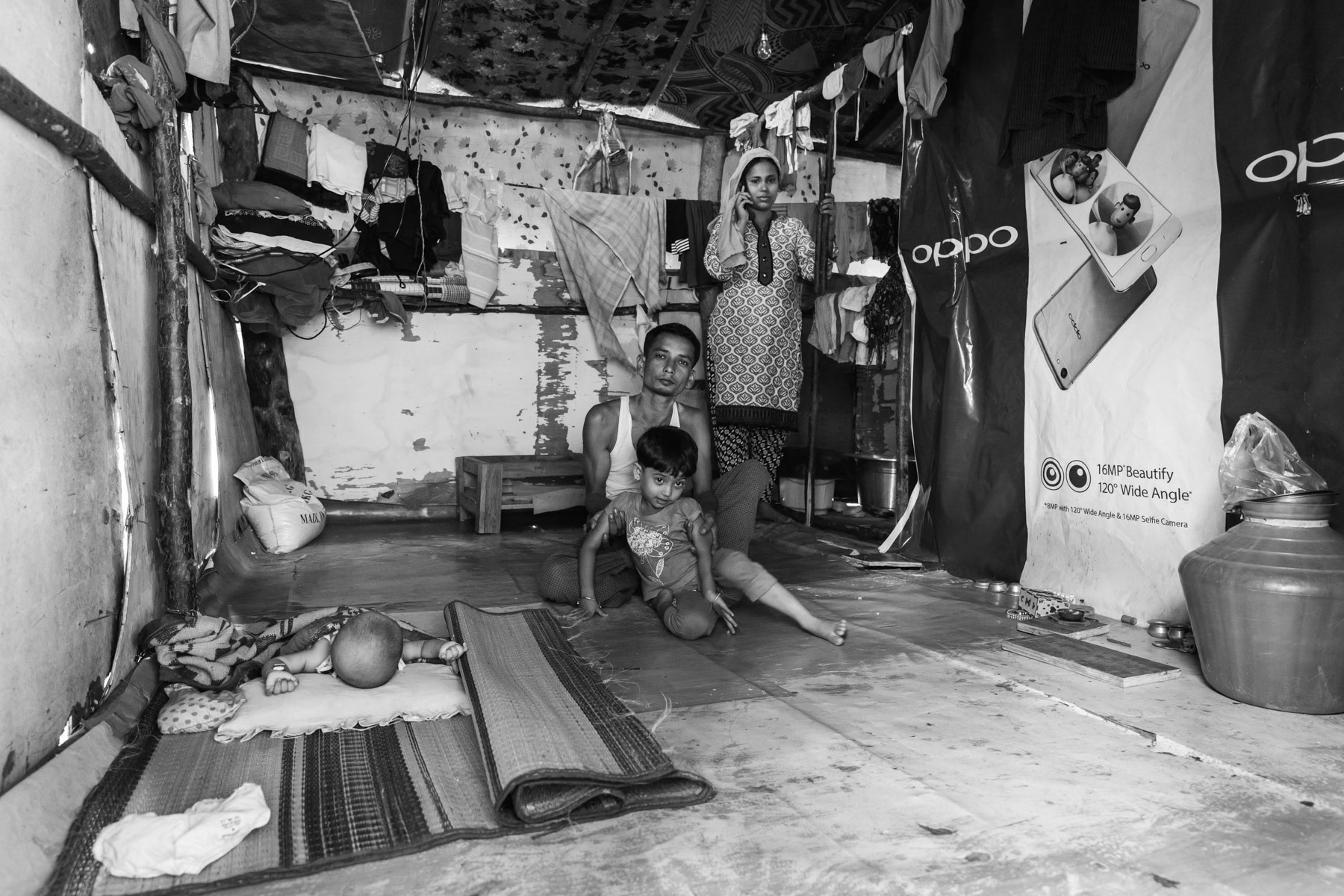
Rohingya refugees living near Chennai in Southern India, Kelembakkam in the State of Tamil Nadu, June 2017
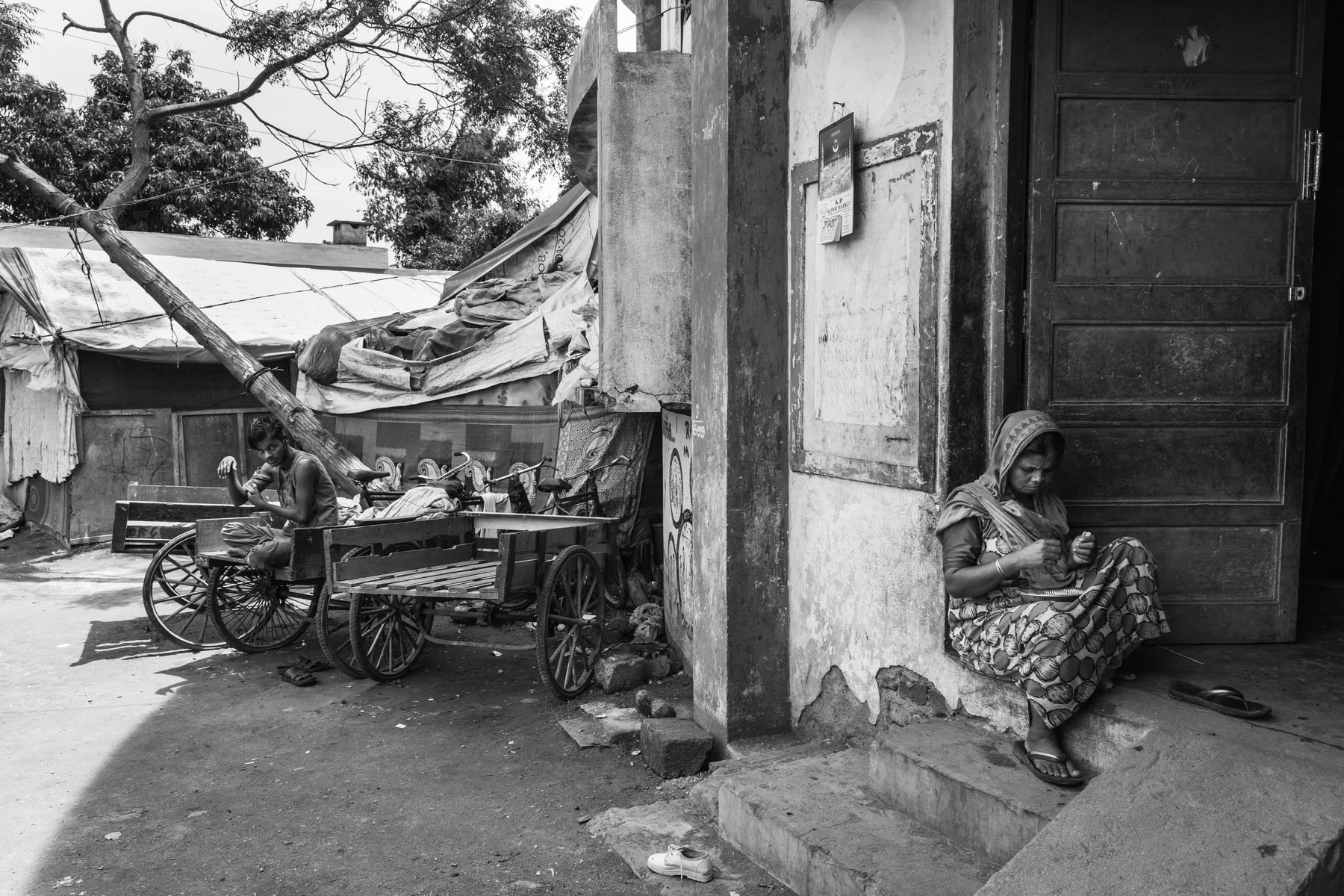
One hundred Rohingya refugees live in an abandonned cyclone shelter in Kelembakkam near Chennai in the Indian State of Tamil Nadu, India, June 2017
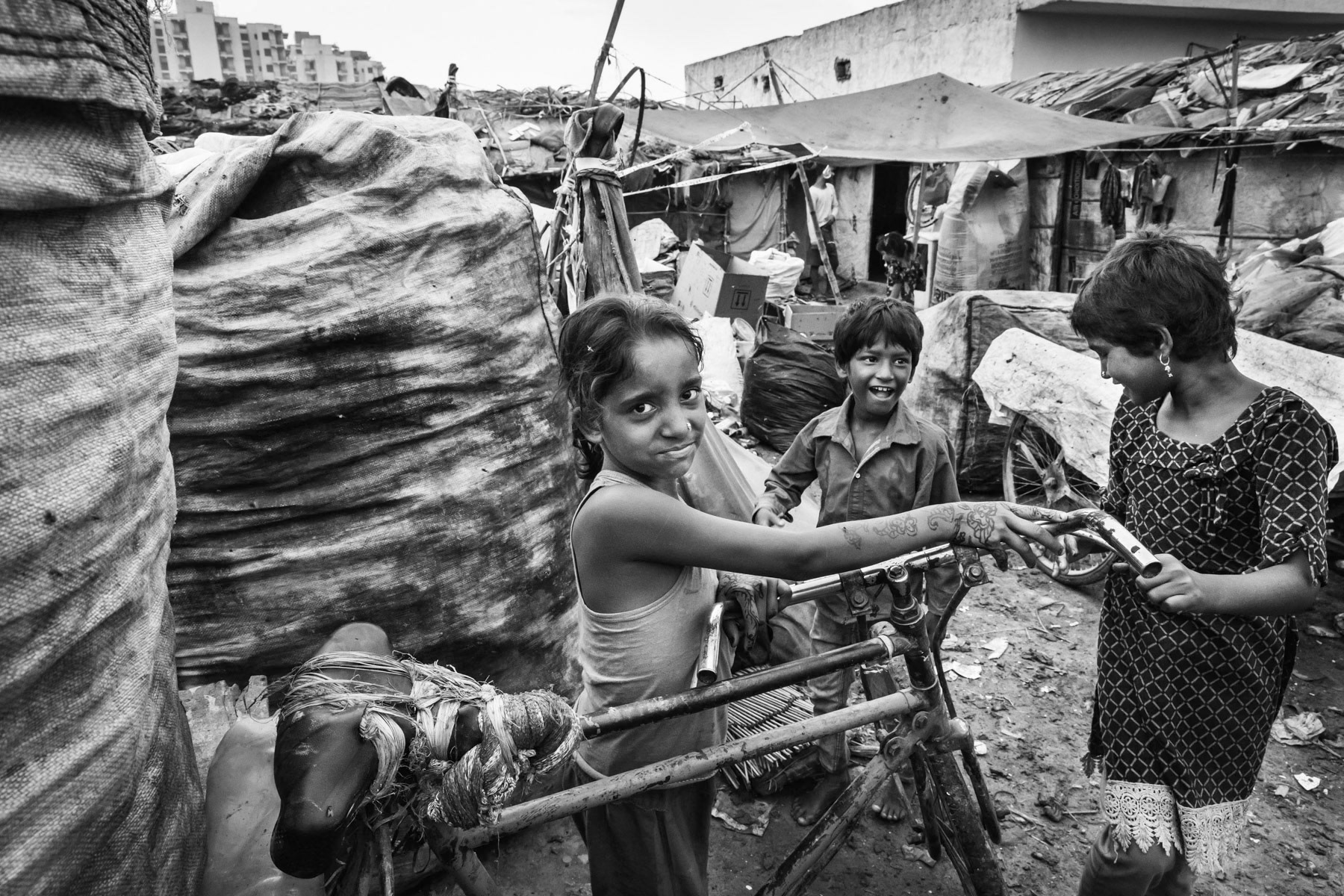
Rohingya refugees living in a state of bonded labour, working until they can pay off their debts for having been smuggled into India. There is a large proportion of child labour as the entire family is set to work. For these children school is inaccessible. Faridabad in Haryana State, India, June 2017
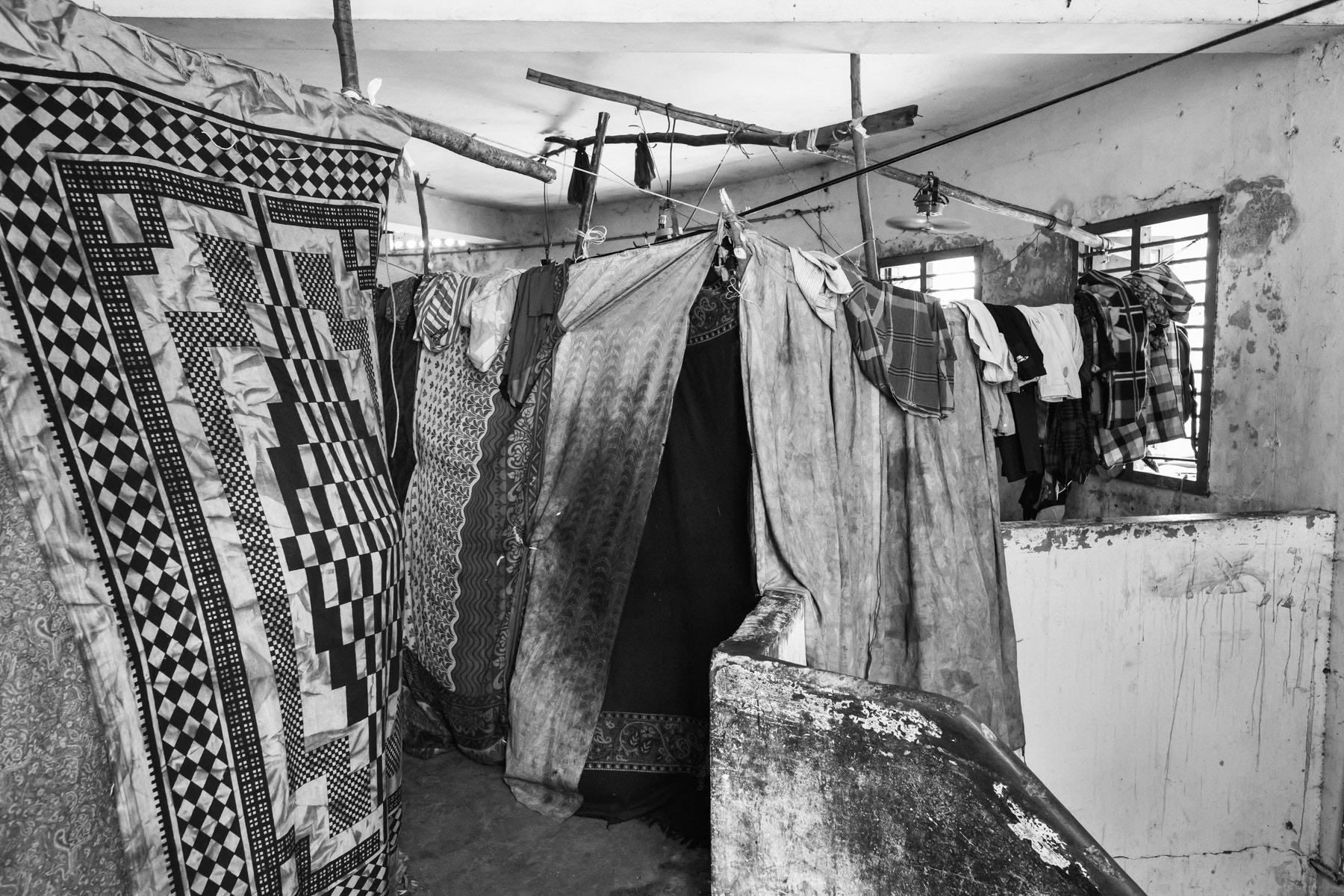
One hundred Rohingya refugees live in an abandonned cyclone shelter in Kelembakkam near Chennai in the Indian State of Tamil Nadu, India, June 2017
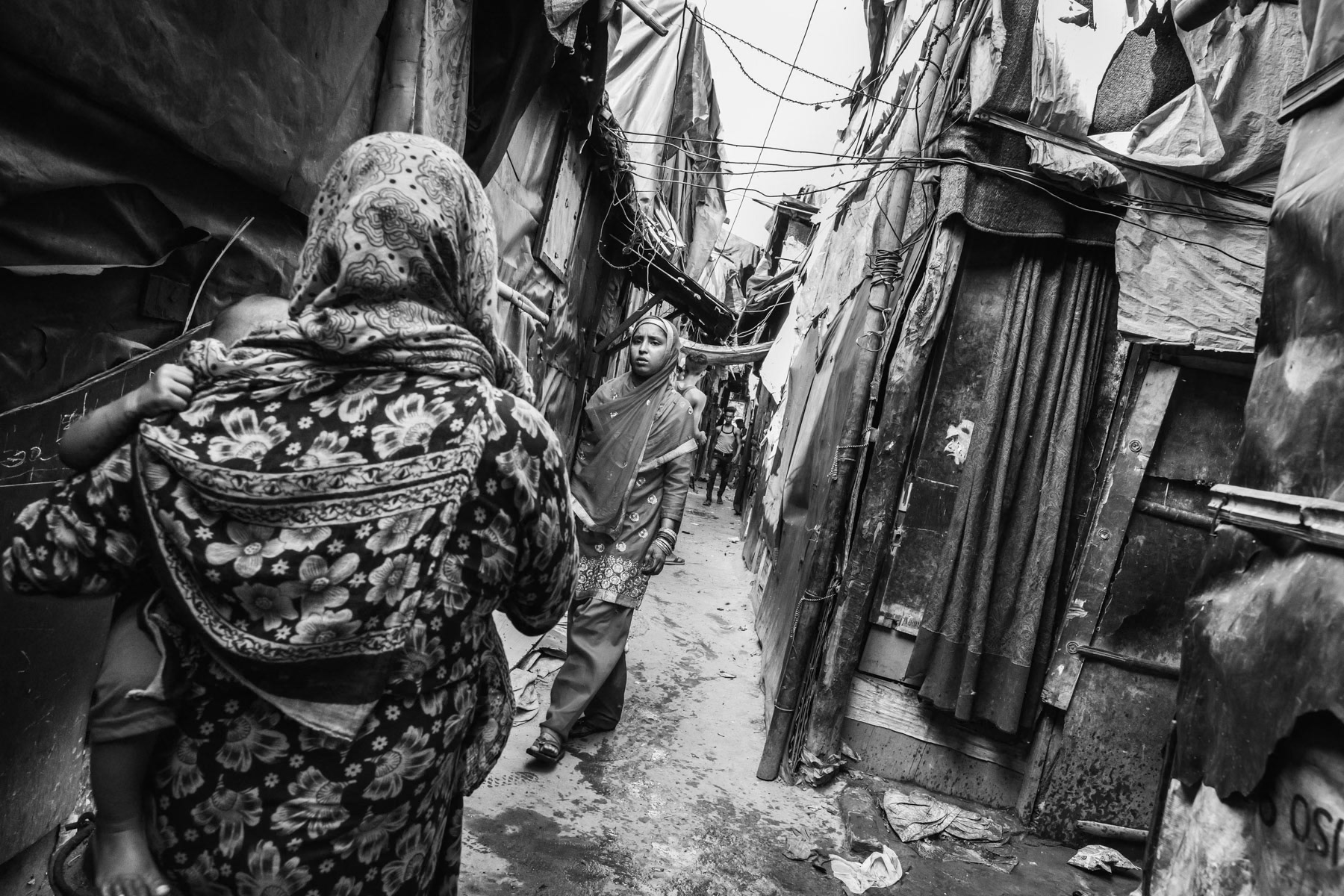
Kunjankuh urban camp for Rohingya refugees in a remote suburban area of Delhi. Okhla, New Delhi, India, June 2017
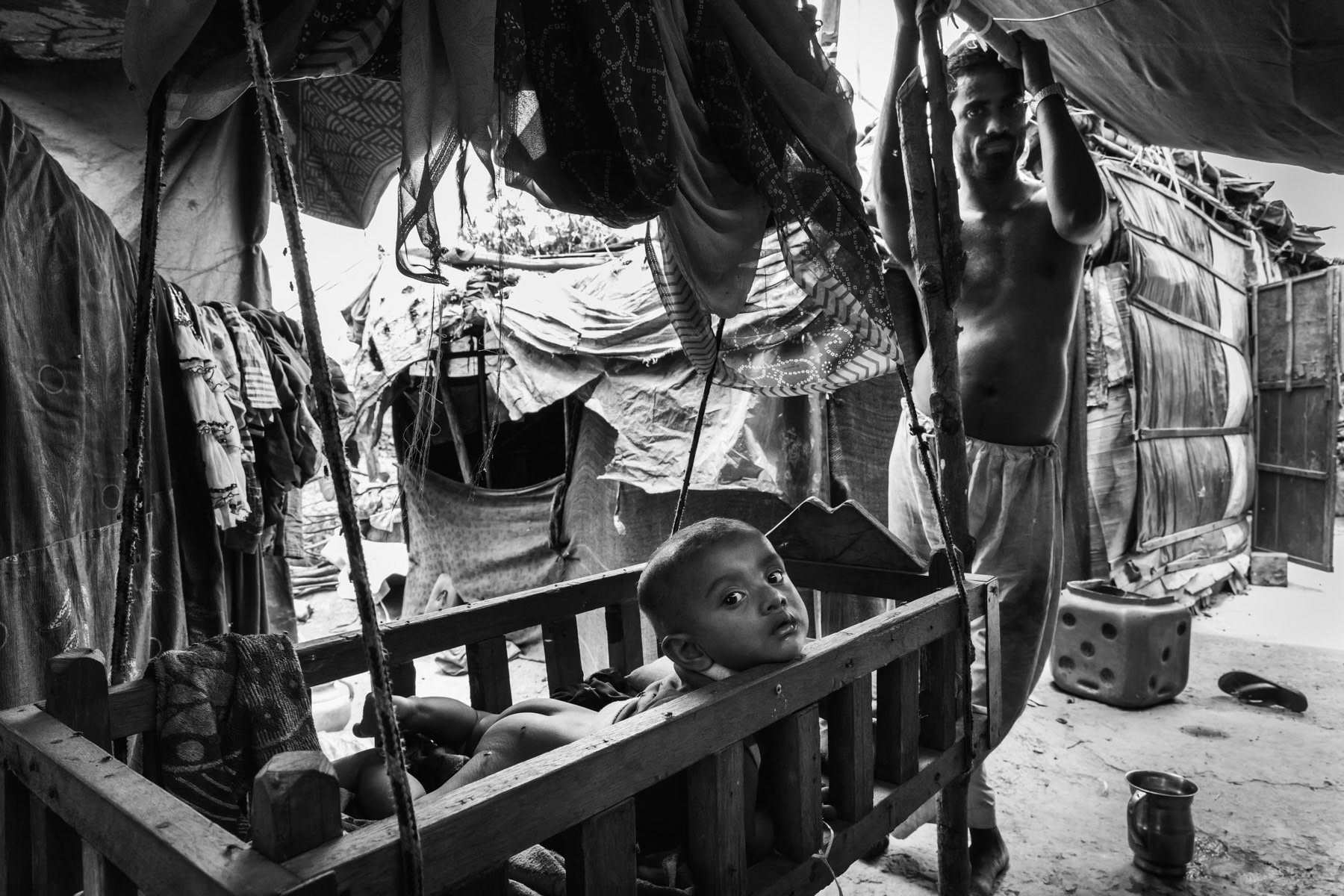
Sharam Vihar makeshift camp for Rohingya refugees from Myanmar, Delhi suburbs, India, June 2017
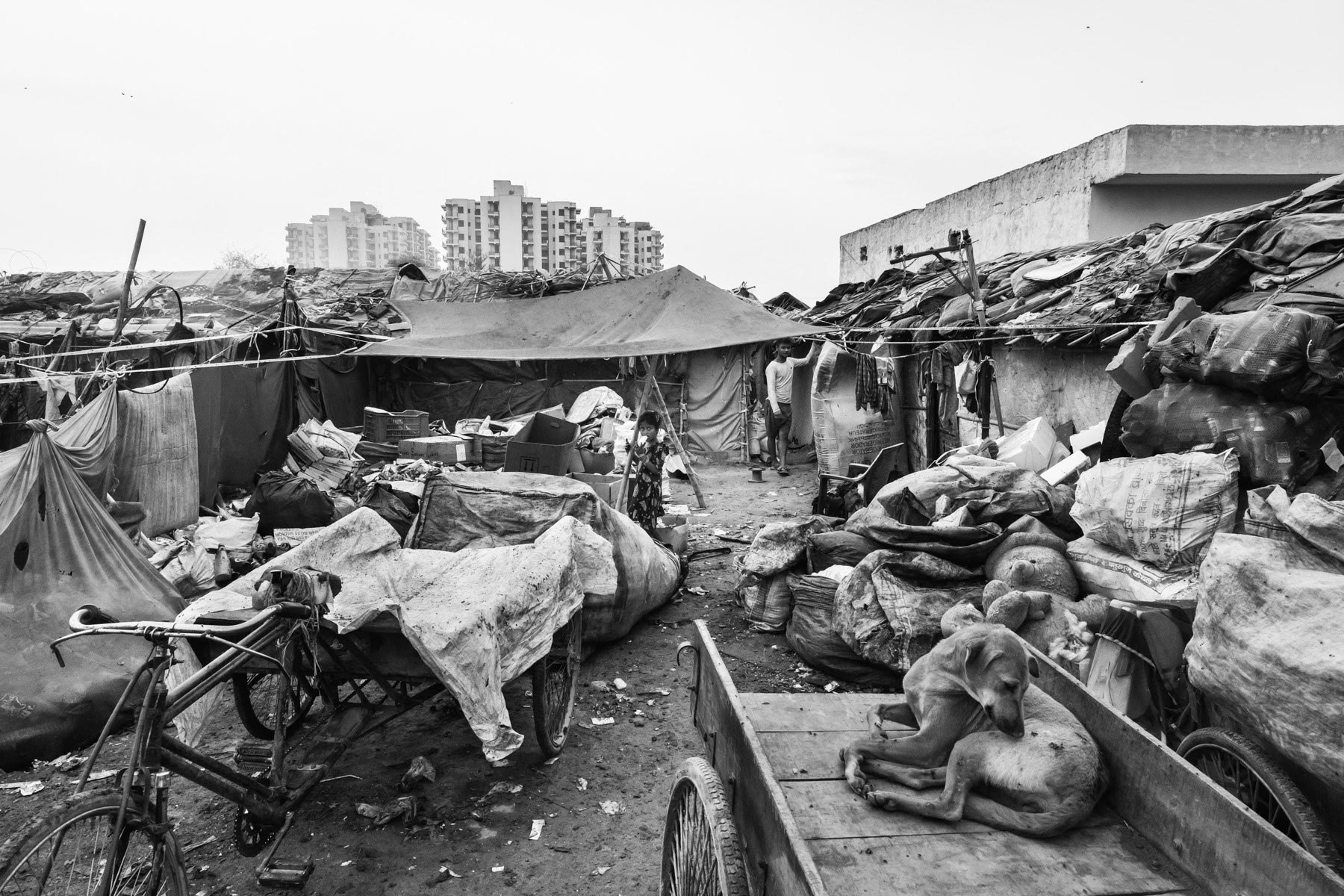
Burana bonded labour camp where 37 Rohingya families are enslaved and "owned" by a local contractor controlling waste picking and recycling in the area. The ones victim of bonded labour are extremely vulnerable and face an almost impossible task to buy themselves out of this situation. Although illigal, bonded labour practices are still widespread and rarely stopped by the authorities. Faridabad in Haryana, India, June 2017
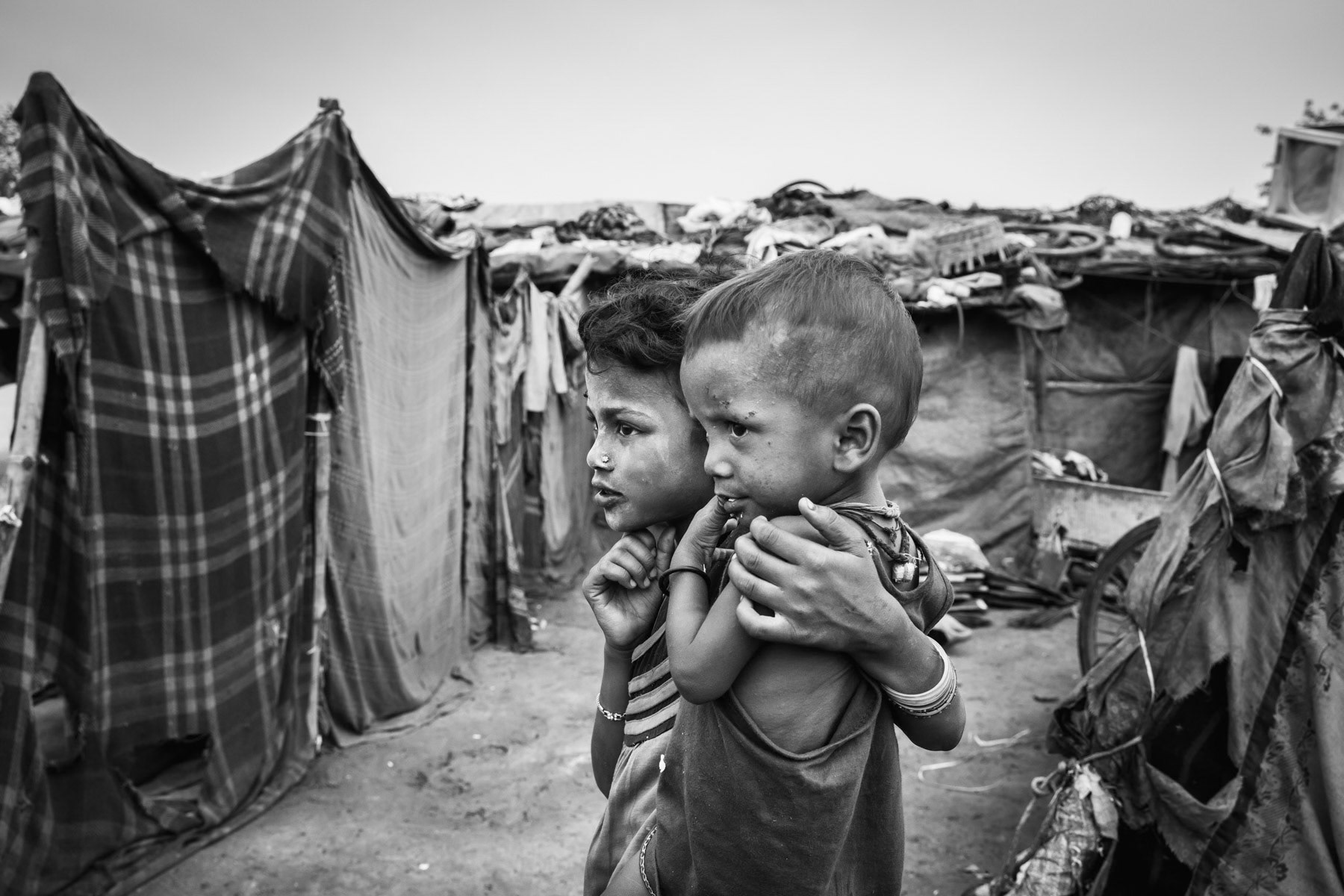
Burana bonded labour camp where 37 Rohingya families are enslaved and "owned" by a local contractor controlling waste picking and recycling in the area. The ones victim of bonded labour are extremely vulnerable and face an almost impossible task to buy themselves out of this situation. Although illigal, bonded labour practices are still widespread and rarely stopped by the authorities. Faridabad in Haryana, India, June 2017
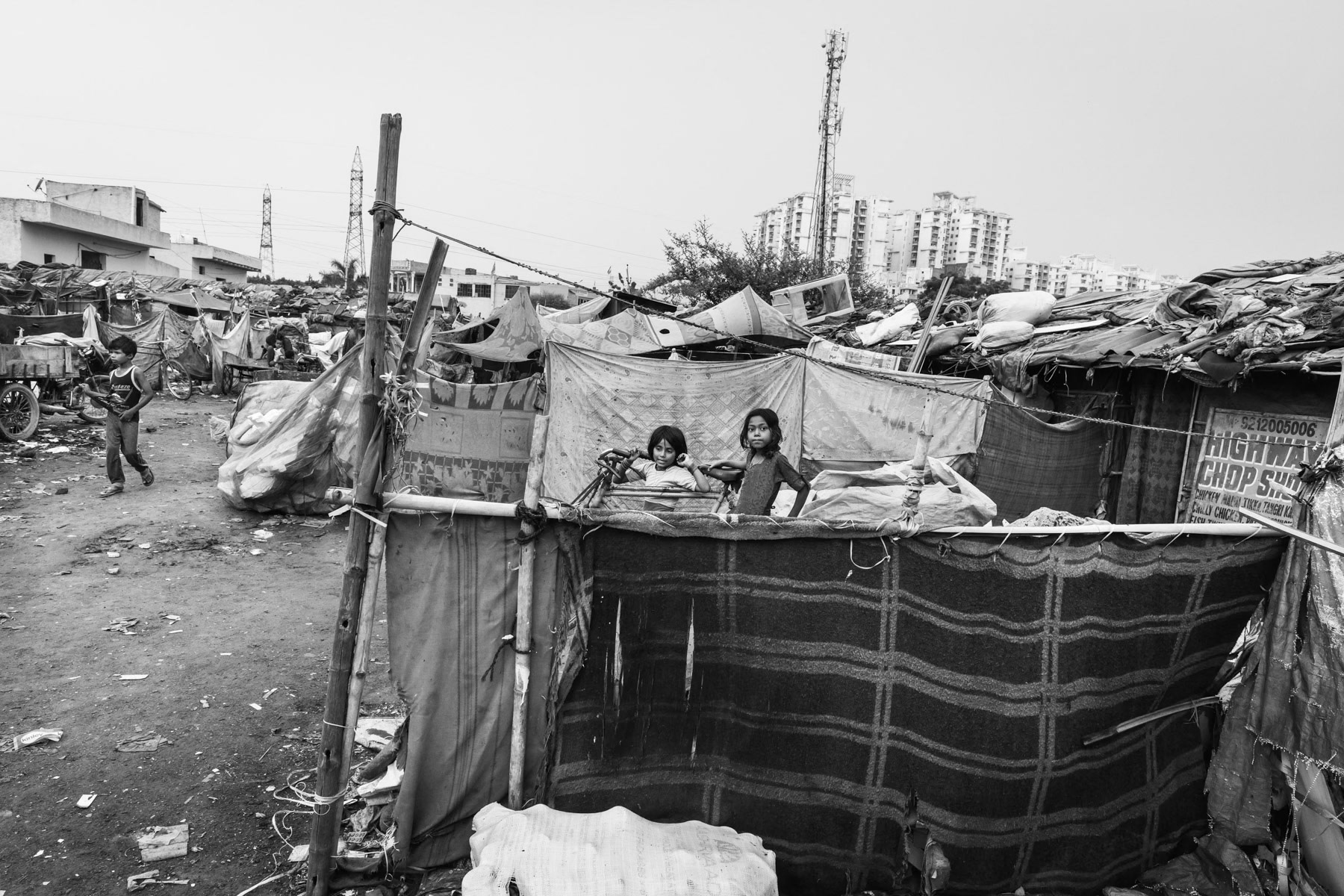
Bonded labour makeshift camp where about 130 Rohingya refugees are held, Old Faridabad in Haryana State a couple of hours from the capital New Delhi, India, June 2017
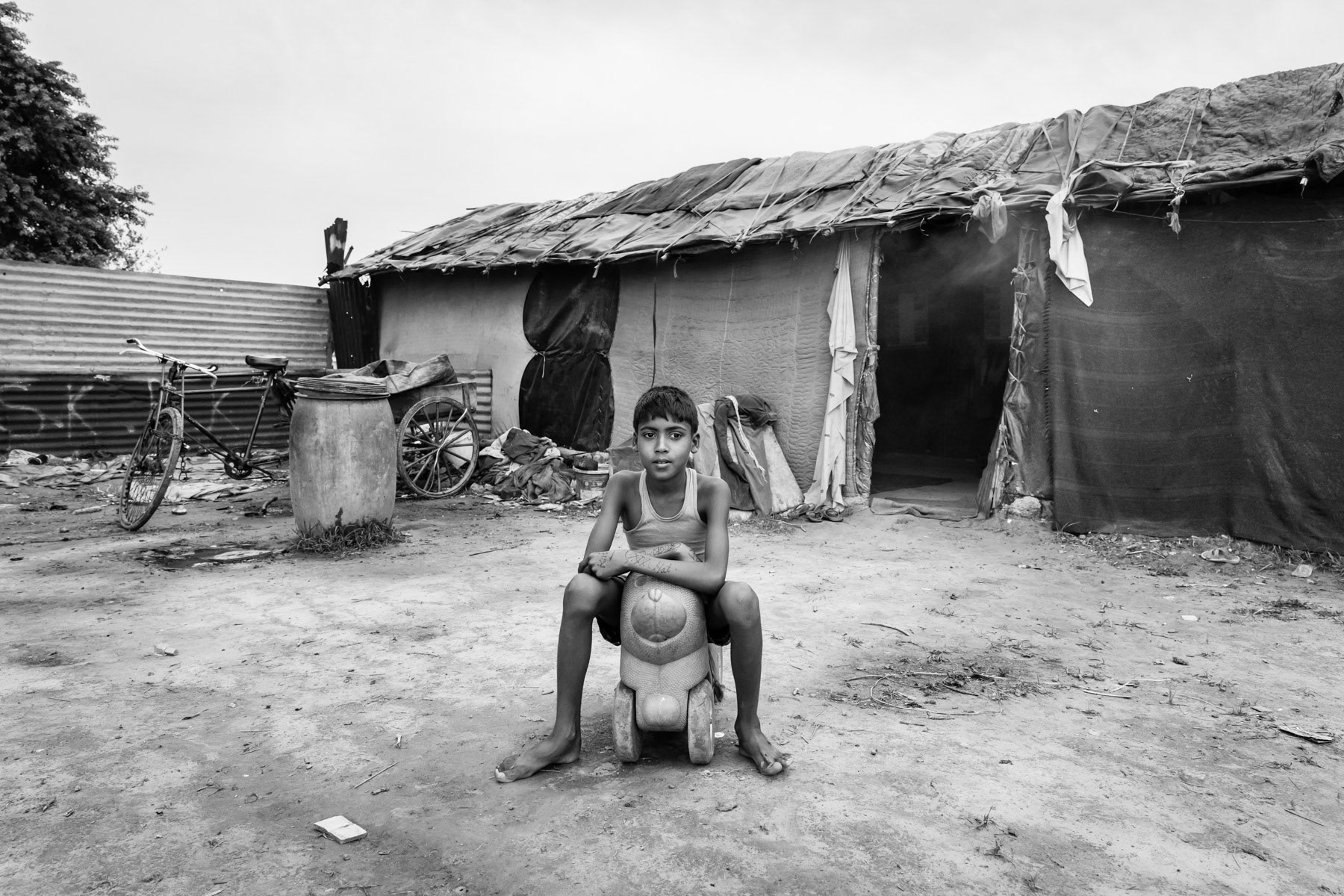
Mujeri camp, a new camp established in 2016. Fifty Rohingya families are enslaved and "owned" by Ali Hussein a Rohingya from Bangladesh exploiting his own people in India. The ones victim of bonded labour are extremely vulnerable and face an almost impossible task to buy themselves out of this situation. Although illigal, bonded labour practices are still widespread and rarely stopped by the authorities. Faridabad in Haryana, India, June 2017
